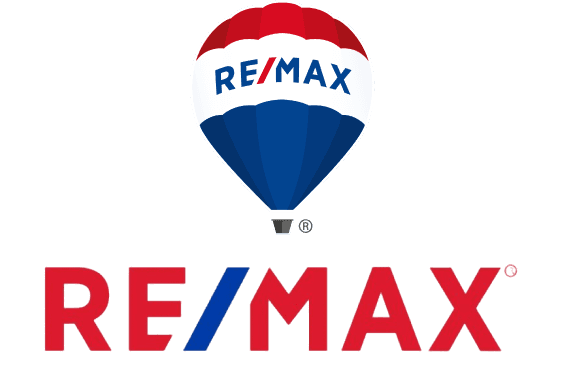As a realtor in BC, I often encounter questions about the energy efficiency of modern homes. With climate change and rising utility costs, energy efficiency has become a priority for many homebuyers. This article explores whether modern houses are indeed more energy-efficient and the benefits they offer.
1. Understanding Energy Efficiency in Modern Homes
Modern homes are designed with energy efficiency in mind, incorporating advanced building practices and technologies. Energy-efficient homes typically feature:
Airtight construction
Air-sealing around windows and doors
High-performing or ENERGY STAR equipment (e.g., air conditioning, furnaces)
ENERGY STAR windows, appliances, and lighting
Solar power options
Strong insulation
These features contribute to reduced energy consumption and lower utility bills, making modern homes more sustainable and cost-effective.
2. Benefits of ENERGY STAR Equipment
ENERGY STAR is a government-backed symbol for energy efficiency. Products with this certification meet strict efficiency criteria, leading to significant cost savings and environmental benefits. For instance:
ENERGY STAR Windows: These windows use materials like fiberglass or vinyl to insulate homes better, reducing heating and cooling costs.
LED Bulbs: ENERGY STAR-certified LED bulbs last 15 times longer than traditional incandescent bulbs and convert 95% of their energy into light, significantly lowering energy consumption.
By investing in ENERGY STAR products, homeowners can enhance their home's efficiency and reduce their environmental impact.
3. Financial and Ecological Savings
Energy-efficient fixtures offer both financial and ecological benefits. For example:
Windows: ENERGY STAR windows can lower heating and cooling bills by providing better insulation, reducing the need for constant temperature adjustments.
Lighting: LED bulbs not only last longer but also save money over their lifetime. The average cost savings of one LED bulb is around $55, and their efficient energy use means less heat waste.
These savings accumulate over time, making energy-efficient homes a smart investment.
4. Evolution of Building Practices
Modern homes are generally more energy-efficient than older homes due to advancements in building practices. Improved insulation, better construction materials, and the widespread availability of energy-efficient fixtures contribute to this efficiency. For example, homes built today are designed to be more airtight, reducing the amount of outside air entering and the conditioned air escaping.
5. The Role of Solar Power
Solar power is becoming an increasingly popular option for energy-efficient homes. While historically less efficient, modern solar panels can now convert around 33% of sunlight into energy. This improvement makes solar power a viable option for homeowners looking to reduce their reliance on traditional energy sources. However, the effectiveness of solar power can vary based on the climate and geographic location.
6. Comparing Modern and Older Homes
When comparing modern and older homes, it’s clear that newer homes are designed to be more energy-efficient. Advances in technology and building practices mean that modern homes are better insulated and equipped with energy-saving features. Older homes can be retrofitted with energy-efficient upgrades, but the inherent design of modern homes gives them an edge in efficiency.
7. Practical Steps for Homebuyers
For homebuyers in BC looking to invest in an energy-efficient home, consider the following steps:
Check for ENERGY STAR Certifications: Look for homes with ENERGY STAR windows, appliances, and lighting.
Inspect Insulation and Sealing: Ensure that the home is well-insulated and has proper air-sealing around windows and doors.
Explore Solar Power Options: Consider homes with solar panels or the potential to add them in the future.
Evaluate Long-Term Savings: Calculate potential savings on utility bills by investing in energy-efficient fixtures.
Conclusion
Modern homes are more energy-efficient than those built decades ago, thanks to improved building practices and the availability of advanced technologies. Investing in an energy-efficient home offers significant financial and ecological benefits, making it a smart choice for homebuyers in BC. By understanding the features that contribute to energy efficiency, you can make informed decisions and enjoy the perks of a sustainable, cost-effective home.
FAQs:
What makes modern homes more energy-efficient than older homes?
Modern homes incorporate advanced building practices, better insulation, and energy-efficient fixtures, leading to reduced energy consumption.
How do ENERGY STAR products contribute to energy efficiency?
ENERGY STAR products meet strict efficiency criteria, offering significant cost savings and environmental benefits, such as better insulation and longer-lasting lighting.
What are the financial benefits of investing in energy-efficient fixtures?
Energy-efficient fixtures reduce utility bills over time, with savings accumulating from lower heating, cooling, and lighting costs.
Is solar power a viable option for modern homes?
Yes, modern solar panels are more efficient, converting up to 33% of sunlight into energy, making them a viable option for reducing reliance on traditional energy sources.
What steps can homebuyers in BC take to ensure their home is energy-efficient? Homebuyers should look for ENERGY STAR certifications, inspect insulation and sealing, explore solar power options, and evaluate long-term savings on utility bills.


